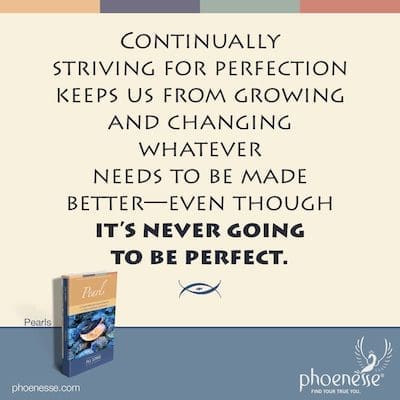What does it mean to “find God?” Is that even a real thing? And if it happened, what would that look like? Would it make us perfect?

For real, there is such a thing as finding God, and there’s nothing hazy or unrealistic about it. It’s actually a very concrete process and yields tangible results. When we find God, we understand the laws of the universe—we get how the world works—and we are capable of loving and relating. We experience joy and are truly self-responsible. We have integrity and the courage to be ourselves, even if that means giving up someone else’s approval.
All this is what happens when we find God. Well that’s funny, this looks exactly like what happens when we find our true selves. Finding God then, by whatever name we call the process, is the same as finding ourselves and coming home from self-alienation.
A built-in aspect of finding of our honest-to-goodness real selves includes having the capacity to feel joy and to give joy. But we can’t give what we don’t have, and just how are we to become joyful when we live in such an imperfect world?
Whether we realize it or not, we associate a joyful life with a perfect one. We can’t enjoy life if we’re not perfect—or so we think—nor can we enjoy our neighbors or our lovers or our situation in life. So let’s pause right here because this is one of humanity’s most misguided beliefs.
Sure, we know in our heads there is no perfection in this life. That’s why we repress our inner reaction to imperfect situations. But our repression causes the conflict—and our confusion about it—to go up and not down. So there is a discrepancy between what’s in our heads and what happens in our emotions. Essentially, we demand perfection, and that’s just not what’s happening.
It’s time to connect the dots between how our need for perfection alienates us from our true selves, which in turn destroys our chances for a joyful life. No one’s shooting unrealistically for 100% joy here, but it could be possible to have a lot more joy than we do now.
Odd as this may seem, our capacity to give and receive joy links with our acceptance of imperfection—not in theory but in our gut-level emotions. These, of course, are two entirely different animals. We can start by accepting that we have this discrepancy inside ourselves, which takes a great deal of systematic self-search to do for even a moment.
Only by accepting an imperfect relationship—and this doesn’t mean submitting in an unhealthy way because we fear being alone or disapproved of—will we get and give joy in the relationship. And only by accepting that we are imperfect beings can we grow out of our imperfections and enjoy the experience of being who we really are, right now. We need to stop being out of touch with reality as we know it.
Many of us have become so good at repressing our feelings that we’re not fully aware of our own unfulfillment, of our frustrations. We know perfection can’t be had so we vaguely skip over what falls short of perfection. But our effort to remain unaware of what we’re feeling generates a lot of destructive energy.
Two things are harmful about this repression. First, had we chosen awareness instead, we could have seen how our frustration was uncalled for. We could have looked at the patterns responsible for our frustration and done something about them. Second, when we’re busy repressing, we’re not in position to accept what we can’t change—namely, that life and people are imperfect.
We need a certain level of awareness to discriminate between what we should change—in order to have more fulfillment—and to know when we’re rolling over because it’s just easier that way. Deep down, we’re often pitching a fit over whatever is unchangeable while at the same time, our impossible demand for perfection causes us to stagnate—we won’t change our inner patterns, which could lead to so much more fulfillment.
Step one for finding our way out of this paper bag we’re lost in is to give ourselves the luxury of facing our longings. What do we desire and what’s our complaint against life or fate or others for not having it? If we resent that something in our lives isn’t perfect, we need to come face-to-face with our resentment. Only if we fully face our resentment against imperfection can we begin to accept imperfection. And only by accepting imperfection can we find enjoyment in our relationships and in life.
Continually striving for perfection though—and remember, perfection doesn’t even exist here on Earth—keeps us from accepting what truly is. That’s how we spoil our lives and our relationships. It keeps us from growing and thus changing whatever needs changing and being made better, even though it’s never going to be perfect.
This may seem like a paradox: we are only capable of joy if we accept imperfection; to grow, we must accept our own imperfections. But if we think about it, this makes sense. And really, how hard could it be? In practice, it is often very difficult because we’re not aware of our own feelings and reactions. We have so many hidden crevices inside ourselves, it will require our full attention to peer into them. Good news, once we’ve made some progress, it will become super-cinchy to do this because we’ll be staring at the truth.
And what’s the truth again? That this world is imperfect. That’s reality. What’s the reality, or truth, of the current state of our soul? We don’t accept imperfection. We need to face the reality of both of these truths—one about the world and the other about the state of our soul.
Those who are actively engaged in doing this work of self-development often get tripped up by perfectionistic attitudes toward themselves: “I should have worked through my problems by now. I can’t be happy until my problems are resolved, so I must be impatient, compulsive and restless. I can’t live in the imperfect present but must always be living in the future when I hope to be perfect. Then I’ll experience perfect happiness, perfect love and perfect relationships.”
Of course, we don’t formulate such thoughts so clearly. But if we could translate our emotions, this is how they would sound. Then it dawns on us that we’re never going to get there—we’ll never resolve all our issues in this lifetime. This makes us discouraged: “Why bother? Why face all these truths inside myself?” This kind of reaction typifies a perfectionistic attitude about spiritual growth. Unconsciously, we’re planning to go the route of achieving complete perfection. None of this step-by-step growth business for us.
People, we don’t have to be problem-free. In truth, we cannot be. We don’t have to be perfect to live fully, have more awareness and enjoy more fulfilling experiences. Accepting our imperfections, in fact, makes us less imperfect and flexible enough to change. It’s our haste and shame about not being perfect that create rigid walls, obliterating the possibility for change.
The trouble, as is often the case, is our dualistic either/or attitude. Either we strive for immediate perfection—ignoring what’s still not perfect—or we give up. We think that if we accept that we’re not perfect, we’ll get stuck there. This is one coin with two sides, and neither is in truth. If we let both go, we can discover the healthy productive approach.
Another aspect of our wrong attitude of perfectionism is that we think—not consciously, but below in our unconscious mind—that we must meet a standard imposed on us by an outer authority—by rules, by religion, by the world. Hence our efforts to become perfect, be they ever so subtle, lead us from away from ourselves. We need to connect with the goals of our true self. What do we feel and want and fear?
If we focus on growing—rather than on being perfect—we’ll live in the Now. We’ll find our own values and let go of those we’ve taken on from the outside. We’ll do what we do for our own sake and not for the sake of appearances. Finding our own values leads us back to ourselves—away from self-alienation; that’s the way to find harmony within. This will anchor us in ourselves.
We may be quick to respond with ‘Oh no, I don’t pretend. I don’t do anything for appearance’s sake.’ We need to look for this on the level of our emotions, not our minds. Not one human being is entirely free from this. If we can accept this imperfection in us, we can grow. Not accepting our perfectionism stunts our growth.
We’re so conditioned to manipulating our emotions it may take considerable effort to see how we do it. Given our perfectionism, we recognize that some of our conscious feelings aren’t, well, all that perfect, so we superimpose other emotions over the top of them. As such, we don’t function naturally or organically, so how can we be our real selves? In the beginning, it will be a chore just to see how unnatural we are.
In our natural state, our real self will always dare to be spontaneous. But spontaneity is out of the question if we’re hampering our feelings. Examples of how we tamper with our feelings include being overly emotional, overly dramatic, exaggerating our feelings, and talking ourselves into stronger feelings than we actually have. It is not harmless that we do these things that are so self-alienating.
Here’s something else we do to blunt the full force of our feelings: we couple a wrong kind of caution—a fearful holding back—with a forceful will—a pushy forcing current. The same person often adopts both ways. Over-dramatizing connects with using power as our defensive strategy. Repressing feelings is connected with withdrawing, escaping and pretending we are more serene than we are.
Offhand, it might seem like exaggerating feelings makes them stronger, but anything that is not genuine leads to self-alienation and therefore shallowness. When we’re over-emotional, we wish to bend life and people to meet our needs. That is a true manipulation.
The forcing current originates from the urgency caused by unmet needs. The more unaware we are of our needs, the more we repress them and the more forceful will be the urge for fulfillment. What we need to do is become aware of our needs and understand them, and then the urgency and compulsivity will recede, which is a large part of the reason we tamper with our feelings.
The urgency of our unrecognized needs causes us to build up our emotions out of all proportion. It’s like we’re saying, “If my feelings are strong enough, they will be met.” Or if we’re of a more fearful and pessimistic character, we won’t admit they exist at all. We’ll ignore their urgency and squeeze our emotions out of our awareness—but not out of existence.
Making our emotions stronger or weaker cripples their functioning. Then our intuition can’t unfold, nor can our creativity or spontaneity. This cuts us off from the richness of our feelings, impoverishing us. We live on the periphery of our being and feel shallow.
Our aim is to become fully aware of what we’re feeling. We need to sit back and let our emotions come all the way to the surface. Note, that doesn’t mean we have to act on them. Just notice them. Perceive their actual intensity and compare that with what we thought we felt before. This practice will give us a different outlook on our problems and a good sense of what it means to be our true selves.
Once we get started, we may find we only notice our reactions a few days after they happen. We might become angry with ourselves for noticing later what we “should” have noticed at the time. But note the progress. Until now, we might never have become aware of our real reaction. Delayed reaction is progress over dimmed awareness. Notice too the imperfection—we can’t become perfectly aware all at once. Rejoice in the growth process and work to shorten the interval.
We need to learn to make the best of real situations because when we can’t cope with reality, we’re bound to make the worst of them. Then we can’t get any joy from imperfect situations, which is what life is made of.
Return to Pearls Contents
Read Original Pathwork® Lecture: #97 Perfectionism Obstructs Happiness – Manipulation of Emotions



